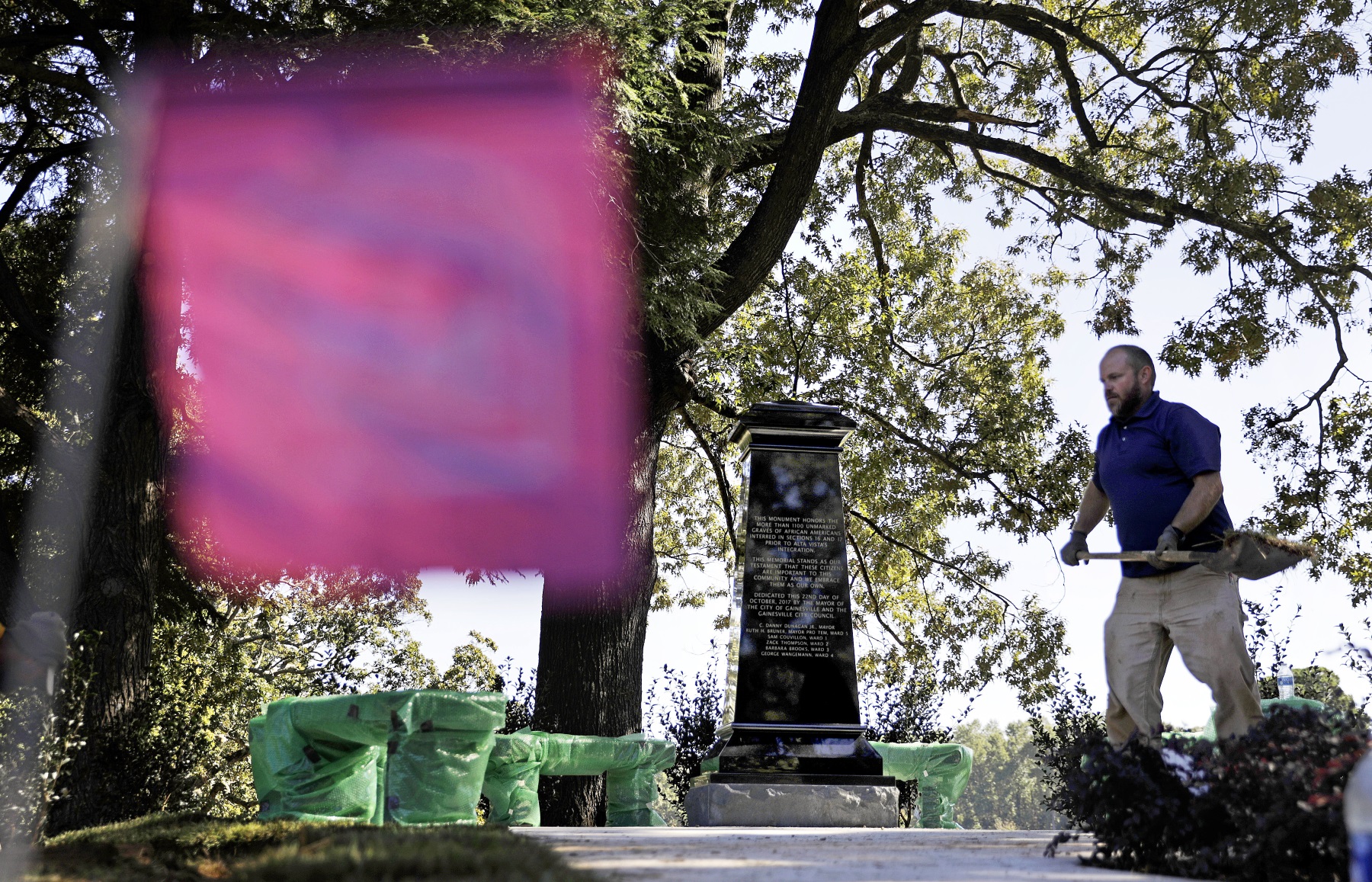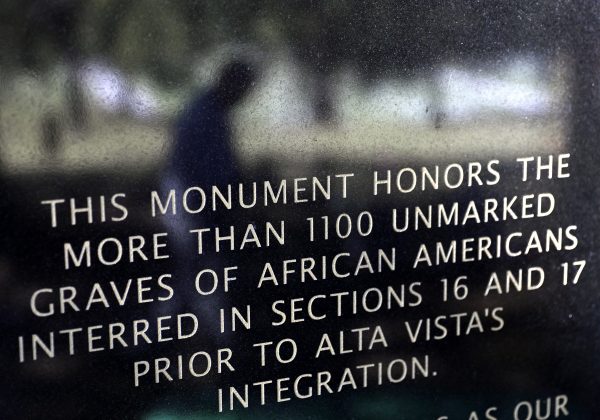Monument Sponsors Seek Information About Ga. African-Americans In Unmarked Graves

A monument to honor African-Americans who were buried in unmarked graves in the previously segregated Alta Vista Cemetery is displayed as maintenance supervisor Kevin Towe takes care of the grounds at the Gainesville, Georgia, site.
David Goldman / Associated Press
When 81-year-old Betty Hopkins misses her deceased father, she can’t visit the exact spot where he was buried at Alta Vista Cemetery in Gainesville, Georgia, because she doesn’t know where his plot is.
“I would love to go to the special spot where he is resting,” Hopkins said. “He was a loving father.”
Most of the descendants of the more than 1,100 African-Americans buried in the black section of the cemetery also can’t locate the remains of their ancestors. Many graves never had markers. The grave of Hopkins’ father had a marker, but over time, it was removed or destroyed.
“It was a little green marker with his name, dates and a plastic cover over it,” Hopkins said.
On Sunday, the city of Gainesville, which oversees the white, black and new, integrated sections of the Alta Vista Cemetery, unveiled a 7-foot monument made of black granite to honor the African-Americans buried in the unmarked graves. Marble benches encircle the monument.
“It’s wonderful,” Hopkins said.
Gold lettering on the monument says, “This monument honors the more than 1100 unmarked graves of African Americans interred in Sections 16 and 17 prior to Alta Vista’s integration. This memorial stands as our testament that these citizens are important to this community and we embrace them as our own.”

Gainesville City Council member Barbara Brooks sponsored the monument.
“For the black community, it was a graceful handshake from the city of Gainesville to our community,” Brooks said. “If you were to put a doormat at the front of your home that said “welcome,” to me, that’s what Gainesville did to the African-American citizens that were buried. And I think that gesture was beautiful.”
The cemetery opened in 1872, according to Brooks.
“It’s not only that black people were separated. But there’s another thing, and that is that the black folks didn’t have money to invest in monuments that would identify their loved ones,” the City Council member said.
In 2015, the city’s public works department had technicians scan the cemetery’s black sections where they found 1,146 graves. The city set flag markers in the ground, and later silver medallions.
Brooks is encouraging families of people who think their ancestors might be interred in an unmarked grave to contact the cemetery.
Brooks hopes the new monument in Gainesville can serve as an example for other cemeteries around the South that remain symbols of segregation and outright racism following the Civil War. Many are neglected, and, in some cases, it’s not clear who owns them.
“If the cemetery is lucky, a historical society comes forward or a family group will form an organization that will provide perpetual care,” Rachel Black, Georgia’s deputy state archaeologist, told USA Today in 2013.
Otherwise, Black said, the situations can go unresolved.
The remains of 872 African-Americans were recently discovered at Atlanta’s famous Oakland Cemetery, and a report from Fordham University found five slave cemeteries abandoned in Georgia, and another five in poor or fair condition.
Hopkins sees value in her three grandchildren and six great-grandchildren understanding this history, and the history of the Alta Vista Cemetery.
“With your history, you know where you came from and where you are trying to go to,” she said.








